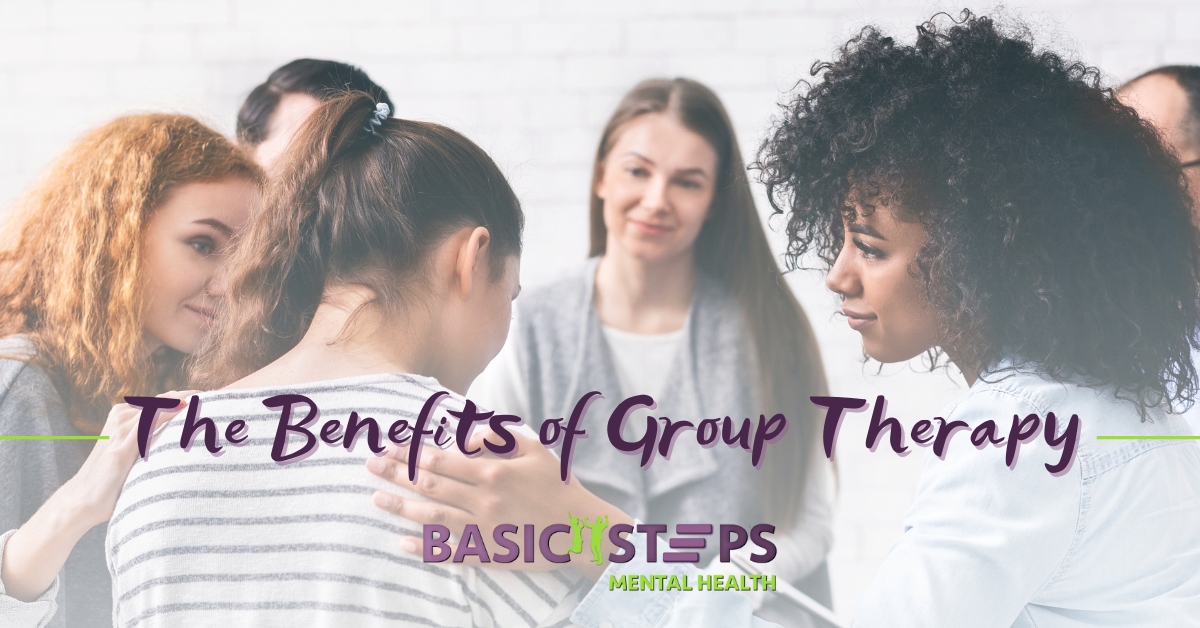
The Benefits of Group Therapy
I read an article years ago about the top 50 therapy approaches for treatment and could kick myself for not saving it. What I recall was group therapy was in the top five, family therapy in the top ten, number 7 was aversion therapy – like Schick Shadel used to offer before their recent close, individual therapy was around 15, and around 47 was the 12 steps. Group therapy will be the focus of this article.
Why is group therapy one of the top approaches?
There are many reasons:
- Support
A fully functioning group cares about all members. If someone is having difficulty, others in the group show genuine care. You have to admit that when someone cares about you it feels great. Add on a few more people and that feeling increases.
- Common Ground
Many times, when somebody talks about a certain issue, others in the group can relate to it because they are going through the same thing. It isn’t uncommon for our groups to have members with the same issues. When you realize that you are not the only person dealing with an issue you don’t feel so alone.
- Hope
As a member in the group shows improvements it shows others that there is hope. “If Bill can improve, then why not me?”
- Improving Social Relationships
Group therapy has a give and take to it. As people communicate with one another, they are suddenly included, feel a part of something, and get to practice better habits.
In our program, participants branch off into duos to practice counseling strategies. You can refer to us as a mini counseling school, since we learned that when you teach you learn. One person acts like the counselor while the other acts like the client, and after they do a session, they switch roles and the counseled is now the counselor.
- Altruism
Altruism is an unselfish concern for the welfare of others. It is a selflessness. When we step out of our mindset and see issues from another person’s point of view, often this breeds compassion. As we learn to care for others it feels good, connects us to them, and it can fulfill our innate need for a social connection.
- Improved Commitment to Self
Individually we can go so far on the path to recovery. When experiencing stress, cravings, and upset, it is natural to regress into old patterns and simply give up. Members in a group are known to push one another forward in their recovery. What we tell people who want to give up – “What if it took just a few more steps to get to the other side?” Members in a group help each other take those extra steps.
- Trying on New Behaviors
We understand that it is difficult to not only look honestly at yourself but also make changes. When other people are using a tool, it is natural to want try it yourself.
In our groups, we start off by stating our intentions. An intention is basically a statement using this format: “My intention is _____________”. For example: “My intention is to heal.” Yes, a bit cheesy, though when we are working on something meaningful it is important to have healing in our sights.
Our hope in therapy is that participants choose to use the new tools they are learning instead of going back to the old patterns that got them into treatment. The more tools, the better, and we provide a warehouse filled of items for all to use and all to share with others who want to learn more about our approach.
- Empowerment
The most important element in group therapy is not giving advice. People have all the resources in them to find their own solutions. If people were to give advice it would be like them saying, “If I were you, I would…” Well, we are not them. Each person has their own way of handling situations. When a group allows a person to search themselves for their own solutions, this is when a person develops, grows, and becomes proud of themselves.
- Gratitude
What touched me most about our current group was a conversation we had yesterday about how each participant looks forward to the sessions. Spiritual Psychology is unique in many ways. First of all, ten evidence-based approaches are taught. The spiritual reasons why people keep experiencing the same issues over and over again is discussed. Lastly, the model of when love is applied to hurt we heal is unique in the field. You ask any therapist what their healing model is, and see if it makes any sense to you.
Let me make a mention here about the school I attended.
The University of Santa Monica was world-renowned. People from all over the globe would fly in once a month for the coursework, practice the psychological tools on one another, fly back home after the weekend, complete the homework, and fly back the next month. In my class, we had people from Australia, England, the Netherlands, Germany, Canada, and South America. Plus, there were priests, nuns, rabbis, people with turbans, basically all faiths. Oh, it was clinical in its scope and we learned and practiced with each other the top evidence-based counseling approaches to date, however, it was also loving and we learned that healing takes place with the application of love.
Lastly, it is important to realize that people are people, including us therapists. What group therapy is all about is every person, including the therapist, opening up to the social situation, being yourself, and above all, being honest.
In a recent group, one person didn’t believe that the tool would work and refused to do the exercise. To me, that is not only acceptable but embraced. They demonstrated their right to set a boundary and I praised them. Who am I to force them to do anything they are not comfortable in doing? Granted, Gestalt therapy can be a bit threatening at first if you are not used to it, so for me, I let them simply be an observer of the exercise, and later in the group, they were ready to jump in and give it a try. We are people working with people and need to proceed at each individual’s pace.
What was my reaction to the person? I shared it with the group. I told them that in the past I would get angry because they weren’t following the directions to a tee and everybody had to follow my rules and do it my way, but I’ve changed from back then and now appreciate people standing up for themselves and honestly communicating. In all actuality, I am also a group member and have to let go of my own agenda.
For new therapists group therapy is challenging. First of all, there are many people in the group and all have their own styles and desires. That is why it is important for each group to have a topic to follow, otherwise, the members can go all over the place. Next, go with your gut. Us therapists were trained to understand the dynamics going on, what developmental stage each person is operating from, and as long as we keep a cool head, keep people on topic, the group will direct itself. If you think group therapy is hard, try family therapy, which can be a great topic to delve into.
Compassionate Care is Always Available
There are many more tools and strategies you can use in your pursuit of happiness. Here is where we come in. Contact us at Basic Steps Mental Health and let us support and educate you on this journey back to your loving heart center. Imagine living a heart-centered life, regardless of what is happening externally. We’d love to be of help.
For 25 years, Dr. Scott Alpert, the clinical director of Basic Steps Mental Health, has treated over 7,000 people with mental health and addiction problems, using a Psychological approach that mixes and matches ten of the top approaches used in the industry. We are here virtually and in-person to help you get through this COVID-19 pandemic and many other difficulties you may be experiencing.
May you have good mental health.
Related Posts
Spirituality in the Workplace
As people return to the workplace, it can be a big adjustment for most. It is...
Can an Addiction be Good?
What is an addiction? An addiction is something that you are compelled to do and...




